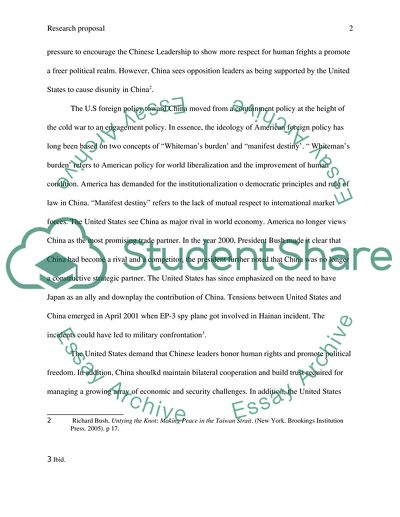Cite this document
(“The US Foreign Policy Respond to China's Rise in 2000-2010 Research Proposal”, n.d.)
Retrieved from https://studentshare.org/history/1602554-what-is-the-us-foreign-policy-to-respond-the-rise-of-china-in-2000-2010
Retrieved from https://studentshare.org/history/1602554-what-is-the-us-foreign-policy-to-respond-the-rise-of-china-in-2000-2010
(The US Foreign Policy Respond to China'S Rise in 2000-2010 Research Proposal)
https://studentshare.org/history/1602554-what-is-the-us-foreign-policy-to-respond-the-rise-of-china-in-2000-2010.
https://studentshare.org/history/1602554-what-is-the-us-foreign-policy-to-respond-the-rise-of-china-in-2000-2010.
“The US Foreign Policy Respond to China'S Rise in 2000-2010 Research Proposal”, n.d. https://studentshare.org/history/1602554-what-is-the-us-foreign-policy-to-respond-the-rise-of-china-in-2000-2010.


